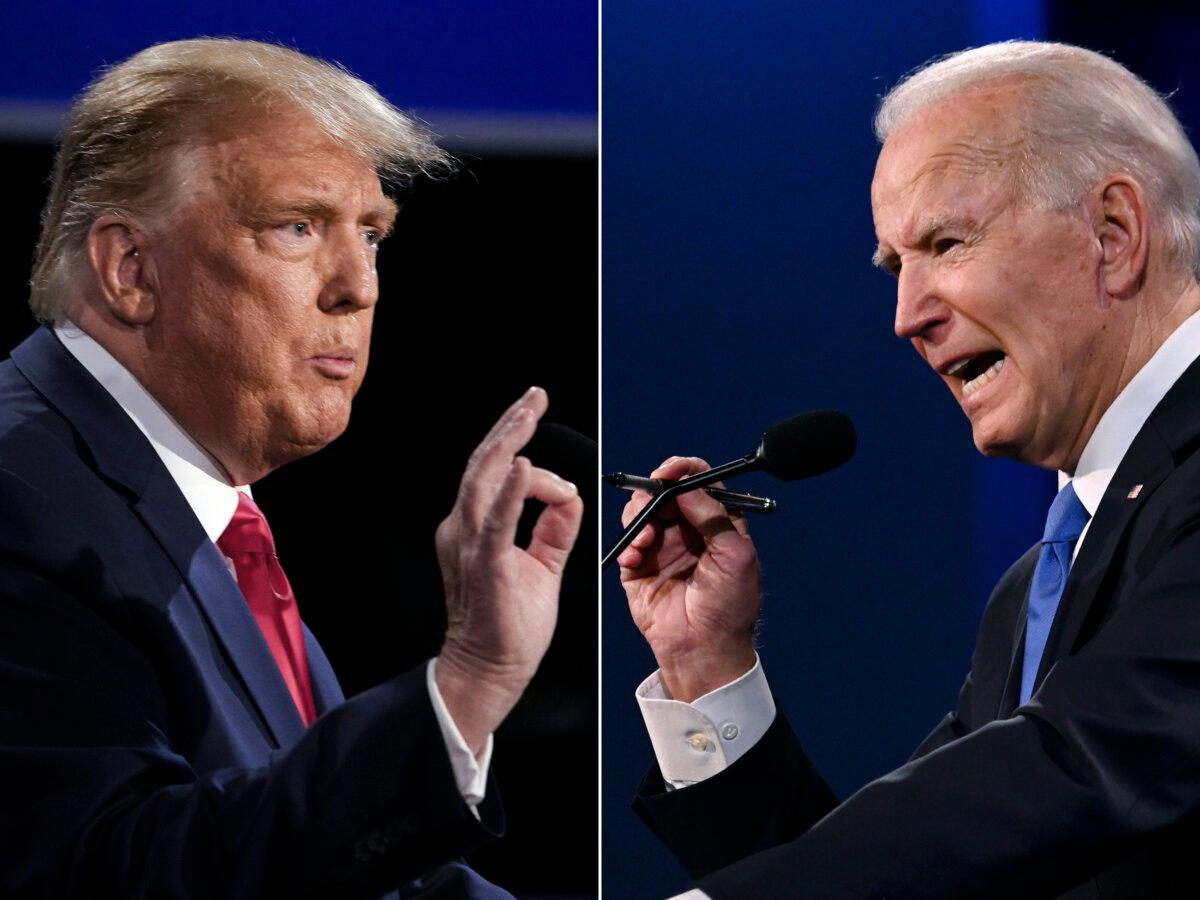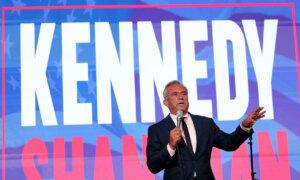At least 10 states haven’t yet certified Mr. Kennedy’s candidacy, which could impact on his eligibility for the debate.
Robert F. Kennedy Jr. is simultaneously working to get on the ballot in all 50 states and the District of Columbia, and racing to meet a June 20 deadline to qualify for CNN’s presidential debate.
The independent presidential candidate is getting closer to accomplishing both objectives.
After submitting 3,300 signatures in Minnesota on June 7, Mr. Kennedy noted that he has ballot access in 19 states with 278 Electoral College votes.
CNN is scheduled to host the earliest televised presidential debate in history on June 27.
According to debate qualification rules listed by CNN, a candidate’s name must appear on a sufficient number of state ballots to reach the 270 electoral vote threshold to win the presidency by June 20.
The Kennedy–Shanahan ticket is officially on the ballot in nine states—California, Delaware, Florida, Hawaii, Michigan, Oklahoma, South Carolina, Texas, and Utah.
The campaign said it had collected enough signatures for ballot access in 10 other states—Idaho, Iowa, Minnesota, Nebraska, Nevada, New Hampshire, New Jersey, New York, North Carolina, and Ohio.
Candidates must also get “at least 15 percent in four separate national polls of registered or likely voters that meet CNN’s standards for reporting.”
The window to determine eligibility for the June 27 debate opened on March 13 and will close on June 20, according to CNN.
CNN issued a long list of polls that meet its standards for debate eligibility, including surveys from CNN, ABC News, CBS News, Fox News, Marquette University Law School, Monmouth University, NBC News, The New York Times/Siena College, NPR/PBS News Hour/Marist College, Quinnipiac University, the Wall Street Journal, and The Washington Post.
According to his campaign, Mr. Kennedy has met the requirements for three of those polls. Last week, he gained 17 percent support in a Marquette Law School survey. In April, he gained 16 percent backing in CNN and Quinnipiac polls.
A recent Harvard CAPS-Harris poll showed that 71 percent of voters want to see candidates outside of the two major parties included in this year’s presidential debates.
President Joe Biden and former President Donald Trump, the presumptive Democrat and Republican nominees, agreed to take the stage on June 27 on CNN, the outlet confirmed in a May 15 press release.
The current and former presidents will also meet for a Sept. 10 debate televised by ABC.

The non-partisan Commission on Presidential Debates has overseen all presidential forums since 1988.
In a May 15 letter to the Commission on Presidential Debates, President Biden’s campaign said he would not participate in the commission’s planned fall debates, citing the preference for earlier dates.
President Trump’s campaign also sent a letter to the commission last month stating it would like earlier debates as well.
Both campaigns have said that CNN assured them Mr. Kennedy would not take part in the debate, although former President Trump told Scripps News on May 16 that he had “no problem” with Mr. Kennedy participating.
CNN announced its qualification guidelines on May 15; however, President Biden and former President Trump will not appear on enough state ballots to win 270 electoral votes by June 20 because their respective parties do not nominate their candidates until July and August.
Until then, they are presumptive nominees.
States typically certify presidential candidates in August and September.
Until this year, presidential debates have been held in late September and October after candidates have been formally nominated by their parties.
At least 10 states haven’t yet certified Mr. Kennedy’s candidacy, which could impact on his eligibility for the debate.
Independent Cornel West, Green Party nominee Jill Stein, and Libertarian Party nominee Chase Oliver are not remotely near the debate qualification guidelines.
In a post on X on May 15, Mr. Kennedy expressed his dismay at not being included.
“Presidents Trump and Biden are colluding to lock America into a head-to-head match-up that 70 percent say they do not want. They are trying to exclude me from their debate because they are afraid I would win,” Mr. Kennedy wrote.
On May 28, Mr. Kennedy filed a complaint with the Federal Election Commission, claiming that CNN collaborated with the campaigns of President Joe Biden and former President Donald Trump to keep him out of the forum.
Mr. Kennedy has said multiple times that he will satisfy CNN’s requirements, but the FEC complaint alleges that the broadcast outlet is “illegally demanding” that he meet different participation criteria than President Biden and President Trump and that the debate is “a large, prohibited campaign contribution” to the current and former presidents.
CNN “colluded” with “the Biden committee and the Trump committee” to schedule a debate with criteria “designed to result in the selection of certain pre-chosen candidates, namely Biden and Trump,” the complaint alleges.
That is “a clear breach of federal campaign finance law,” Mr. Kennedy’s complaint states.
It asks that the FEC prevent the June 27 debate from happening “until the parties have come into compliance with the Federal Election Campaign Act.”
Stefanie Spear, Mr. Kennedy’s press secretary, confirmed that the candidate will accept an invitation to participate in the June 27 event if he qualifies.
CNN disagrees with what Mr. Kennedy contends in his legal complaint.
“As the presumptive nominees of their parties both Biden and Trump will satisfy this requirement,” a CNN spokesperson said.
“Per CNN, that presumption isn’t afforded to RFK Jr. The mere application for ballot access does not guarantee that he will appear on the ballot in any state.”
Original News Source Link – Epoch Times
Running For Office? Conservative Campaign Consulting – Election Day Strategies!


